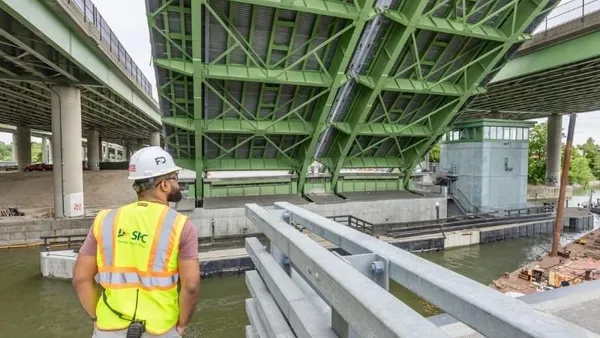Dive Brief:
-
WSP USA and the Texas A&M Transportation Institute (TTI) are partnering up in an attempt to bridge the gap between new transportation technology and connected and automated vehicle (CAV) systems, according to Traffic Technology Today.
-
WSP and TTI will work together on transportation systems management and operations (TSM&Os) research, as well as CAV technology. WSP will also be a resource for TTI and A&M students and will provide opportunities for real-word industry experience.
-
TTI and WSP previously partnered to develop high-occupancy vehicle lanes and said they will use a similar strategy in furthering CAV and TSM&Os technology.
Dive Insight:
The self-driving car industry got a huge break last week when a U.S. House panel unanimously approved the first-ever piece of federal legislation that could end up establishing autonomous vehicle rules and allow their use on U.S. roads. This would be an exception to current rules that prohibit the operation of cars without drive control.
If passed by Congress after the August recess, the National Highway Traffic Safety Administration (NHTSA) would be expected to come up with a regulatory plan and the first self-driving car rules within 18 months. States would also be prohibited from instituting many of their own regulations around the technology. Vehicle manufacturers would also be required to have a cybersecurity plan before releasing their cars onto the road.
While the new bill places restrictions on states as far as self-driving car technology is concerned, many have already begun laying the groundwork in preparation for their use. CAV testing is either planned or underway across the country, including along the Florida Turnpike, a 16-mile stretch of Interstate 85 in Georgia and a 2.5 mile test highway loop near Detroit.
But the research going on at the local and state levels has not been connected and has not had the benefit of clear guidelines. While NHTSA will help remedy that after Congress passes the new bill, state officials must currently rely on a de facto rulebook put together by the National League of Cities. Those guidelines strongly suggest that states do exactly what many are in the process of doing, which is to start making infrastructure upgrades that will support incoming CAV and other transportation technology.













